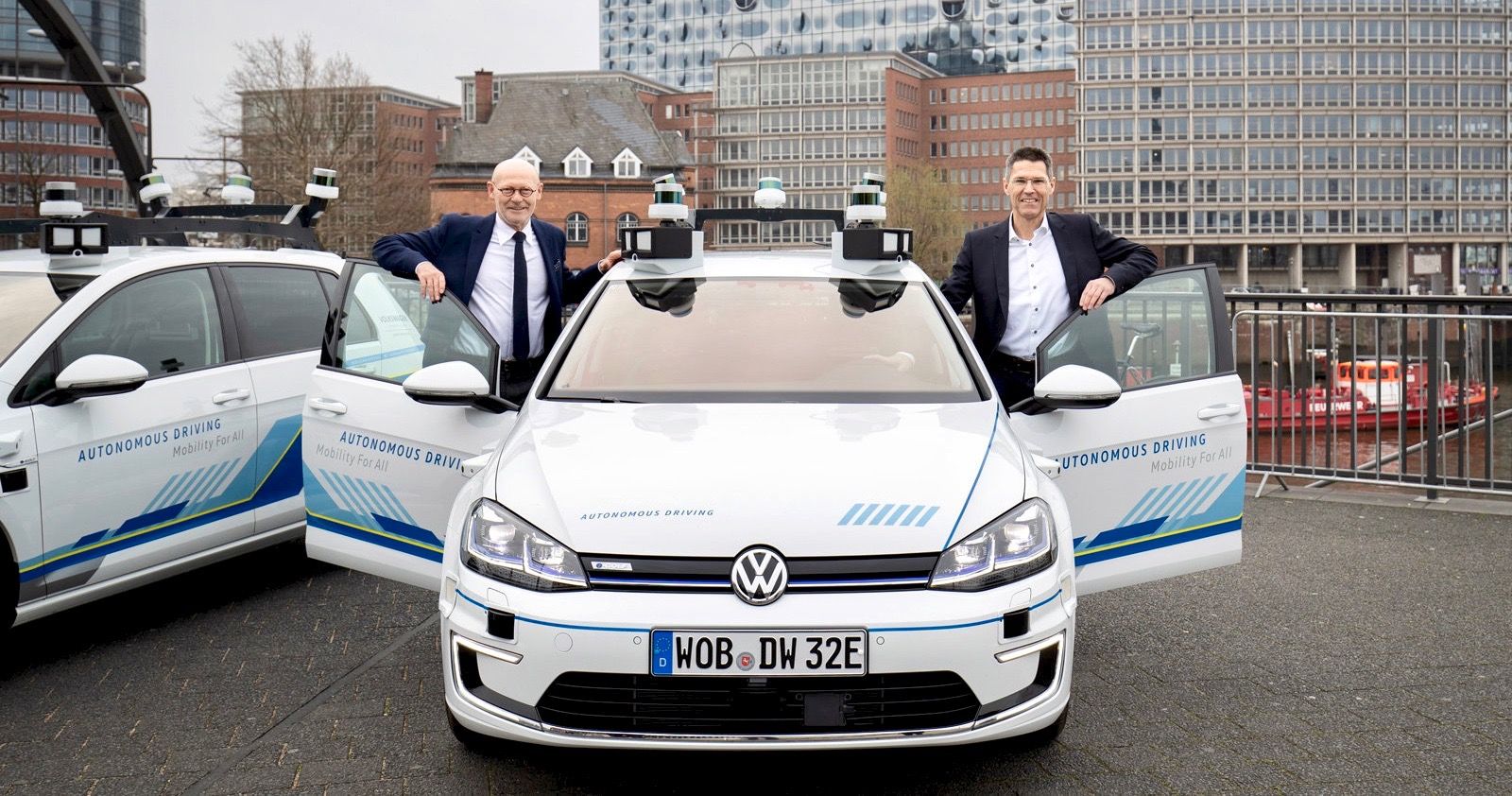Volkswagen has begun testing self-driving cars in Hamburg, Germany. The tests, which are being conducted by Volkswagen Group Research, will observe five e-Golfs travel autonomously on a three kilometer road in the major port city in northern Germany.
The test is the first Level 4 trial for Volkswagen in a major German city, which will test not only the vehicles but also the new connected infrastructure systems that enable urban environments to communicate with vehicles. The standard e-Golf has 125 miles of range on a charge, Apple CarPlay, and Android Auto. For the trial, however the automaker has added a few upgrades.
The e-Golfs have eleven laser scanners, seven radars, ultrasonic sensors and 14 cameras, which enable the vehicles to drive autonomously. However, test drivers will be at the wheel at all times to evaluate performance and take over in case of an emergency. Volkswagen said that computing power "equivalent to some 15 laptops" has been integrated into the e-Golf's trunk to capture and process up to 5GB of data per minute on each autonomous test drive.
In addition, sensor technology will allow the vehicle to gather data on other cars, cyclists, pedestrians, rights of way and intersections. Numerous artificial intelligence techniques, including deep learning and pattern recognition, will be activated. "The tests center on technical possibilities as well as urban infrastructure requirements," Axel Heinrich, who is head of Volkswagen Group Research, said in a statement yesterday.
A nine kilometer "digital test bed" for connected and automated driving is being constructed in Hamburg. It is expected to be completed in 2020. Also, the city’s traffic lights are being updated in order to enable infrastructure-to-vehicle and vehicle-to-infrastructure communication. So far, six traffic lights on the eventual nearly seven mile test route have been upgraded to support V2X, or Vehicle to Infrastructure, communications.
By the end of 2019, Hamburg hopes to add 31 more lights, as well as a V2X-enabled bridge. The goal is to improve connectivity between vehicles and infrastructure to ease traffic congestion and expand overall route guidance.
Heinrich said that to ensure safe and comfortable driving conditions, "vehicles not only have to become autonomous and more intelligent – cities must also provide a digital ecosystem that enables vehicles to communicate with traffic lights and traffic management systems as well as with one another."
RELATED: 2020 Volkswagen Golf R To Get Power Boost
Volkswagen is not the only company that will be using the test route. Hamburg officials says that other users from industry and science have also expressed interest in running trials. They hope to have Hamburg represent “a model city for intelligent mobility,” with more projects expected for 2021. Vokswagen has also been negotiating with Ford to merge forces and know-how to develop self-driving vehicles, using the two automaker’s existing research.

